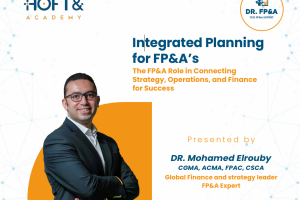
Transforming from Accounting to FP&A Business Partner: 5 Essential Strategies for Success
Are you looking to elevate your finance career beyond traditional accounting roles? The evolution from accounting professional to strategic Financial Planning & Analysis (FP&A) business partner represents one of the most valuable career transitions in today’s business landscape.
Building Strong Business Relationships: The Foundation of Effective FP&A
The journey to becoming an influential FP&A business partner begins with establishing meaningful connections across your organization. Strong relationships are not just nice to have—they’re essential for strategic influence.
Key relationship-building tactics:
- Cultivate rapport with key departments including Commercial, IT, and Marketing
- Translate complex financial concepts into accessible business language
- Demonstrate proactive support in every interaction
- Strengthen bonds through informal connections, like coffee meetings
Research by McKinsey highlights that companies with strong cross-departmental relationships experience a 25% higher increase in annual revenue compared to their counterparts. This demonstrates that relationship-building isn’t merely good practice—it directly impacts profitability and effectiveness.
Developing Business Acumen: Understanding Your Company Inside Out
True FP&A partners possess comprehensive knowledge of their organization’s operations, strategy, and competitive landscape.
How to deepen your business understanding:
- Map your company’s business model to visualize value creation
- Engage in regular strategy discussions with senior leadership
- Participate in cross-functional projects to gain holistic insights
- Conduct field visits to understand customers and suppliers firsthand
This deep business understanding transforms financial professionals from number-crunchers to strategic advisors capable of connecting financial outcomes to business operations.
Harnessing Quality Data: The Lifeblood of Insightful Analysis
In the world of FP&A, the quality of your insights depends entirely on the quality of your data.
Data quality imperatives:
- Implement rigorous data validation processes
- Conduct trend analysis with evidence-backed information
- Understand that quality data produces credible insights
The cost of poor data quality is substantial—businesses lose approximately 20% of their revenue due to data quality issues, while employees waste up to 50% of their time managing problematic data. Investing in data quality isn’t optional for aspiring FP&A leaders.
Delivering Business Insights: Moving Beyond Basic Reporting
The modern FP&A function must transform raw data into actionable business intelligence.
Strategies for generating meaningful insights:
- Focus on forward-looking, predictive analysis rather than historical reporting
- Foster a data-driven decision-making culture
- Leverage AI and predictive analytics for real-time insights
- Ask probing questions that reveal business opportunities
Organizations that effectively utilize analytics are twice as likely to identify performance gaps and opportunities compared to those that don’t. This analytical edge provides the foundation for strategic guidance that drives business performance.
Mastering Financial Storytelling: Communicating for Impact
Perhaps the most overlooked skill in finance is the ability to craft compelling narratives from complex data.
Effective financial storytelling techniques:
- Transform numbers into narratives that inspire action
- Communicate in the language of decision-makers, avoiding technical jargon
- Use simple, impactful visuals to convey complex information
Financial presentations that incorporate storytelling elements are 22% more effective at conveying complex information than those relying solely on data and charts. This storytelling approach makes financial insights more relatable, memorable, and actionable for business leaders.
Conclusion
The transformation from accounting professional to strategic FP&A business partner requires mastering these five essential strategies: building relationships, developing business acumen, ensuring data quality, delivering meaningful insights, and communicating through storytelling.
By developing these capabilities, finance professionals can evolve from traditional accounting roles to become valued strategic partners who drive business performance and organizational success. This transition not only enhances your career prospects but also significantly increases your impact on business outcomes.
Are you ready to make the leap from accounting to strategic FP&A business partner? Start by implementing these five transformational strategies today.
Tag:FP&A



